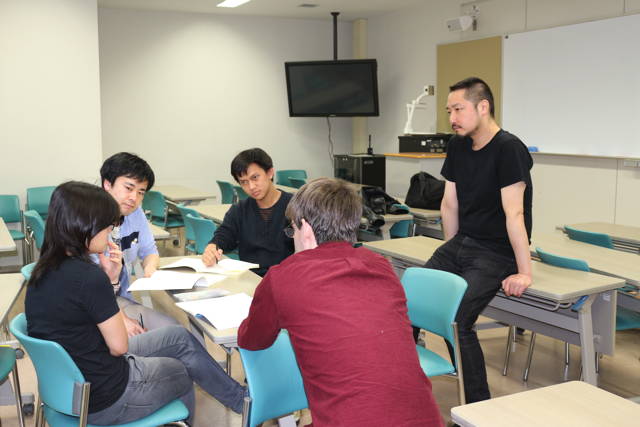English version of this article
6月27日〜7月13日の間の8日間、Hokkaido Summer Institute (HSI) 2016 / 北海道サマーインスティテュート2016 開講科目のひとつ、Research Ethics(研究倫理)が開催されました。
Research Ethics was one of the classes offered at Hokkaido Summer Institute 2016. It was held for 5 days from June 27th to July 13th.
このプログラムは、文系・理系を問わず全研究分野の大学院生を対象に、研究を行う上で必要とされる研究倫理について実践的に学べる授業です。文学研究科のほか、理学研究院、獣医学研究科、法学研究科という文理融合のクラスとなりました。授業を担当するのは、応用倫理研究教育センターの眞嶋俊造先生です。
This program offered a practical learning class for students in both humanities and sciences for the research ethics needed to carry out research. The class was a mix of students from the humanities and sciences, with students from the graduate school of letters, the graduate school of science, the graduate school of veterinary sciences, and the graduate school of law. The course adviser was Professor Majima Shunzo of the Center for Applied Research Ethics Education.
この授業の大きな特徴は、「反転授業形式」で行われたことです。事前に研究倫理に関する映像教材を見てから授業に参加します。授業では、映像教材で学んだ内容について、関連するさまざまな事例を用いて、「あなたならどう判断して、どのように行動するか」「この問題を解決するにはどうしたらよいか」といった課題を、個人またはグループで考え、受講生全員で議論し合います。
One noticeable characteristic about this class is that it was carried out as in the style of “flipped teaching”. Students were given video materials regarding research ethics before participating in class. In class, students would then use the content from the video and several related examples to answer questions such as “what would you have thought? What would you have done,” or “how should one resolve this problem?” Students thought about these problems both as individuals and in groups, and finally all students would debate these topics amongst themselves.
これらの議論を毎回重ねることで、受講生は研究倫理について考える力が養われ、実際に研究を行っていく上で生じた研究倫理の問題を、自分で判断して解決への道を見つけることができるようになっていきます。
Through continuing these discussions, students became more capable of considering problems related to research ethics. Thus, they have also become further able to make decisions on their own to solve problems that come up within the process of research.
受講生からは、「ケーススタディでのディスカッション形式の授業スタイルで、自分で考えながら、他の学生の意見も知ることができた点がよかった」、「今後研究倫理の問題に直面した時に、対処できそうだ」、というコメントが寄せられました。
Comments from the students included claims such as “Being able to think for myself while also hearing the opinion of other students in a discussion style class was good,” and “The next time I face a problem in research ethics, I believe I will be able to handle it.”



